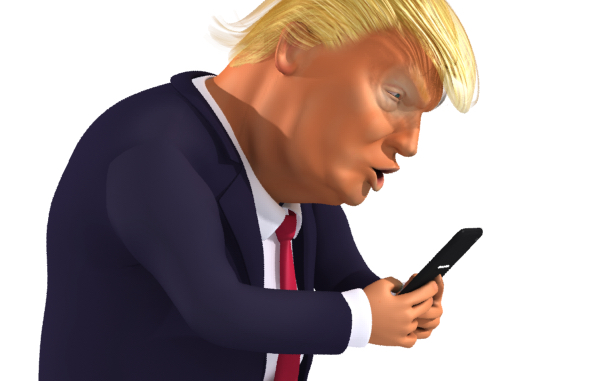
“The highly anticipated meeting between Kim Jong Un and myself will take place in Singapore on June 12th.”
In the above tweet, President Donald Trump revealed the location of the North Korea-U.S. summit on Twitter at 11:37 p.m. on May 10. At 7:30 p.m. on May 30, he also tweeted, “Meetings are currently taking place concerning Summit, and more. Kim Young Chol, the Vice Chairman of North Korea, heading now to New York,” confirming that high-level talks were being held between the two nations.
South Korean reporters have begun monitoring President Trump’s Twitter account for updates, and it’s not just South Korea. Global news outlets such as AP, as well as American media like CNN and The New York Times are also busy reporting on Trump’s tweets. This can’t be helped since President Trump often reveals key news and policies through Twitter that even the State Department or the White House do not disclose. He even fired Secretary of State Rex Tillerson via tweet.
Such tweets seem to happen even without the knowledge of White House officials. The White House gets busy after he tweets, interpreting his remarks and explaining the policies he announces. The White House press secretary seems to have the toughest job, playing the primary role of cleaning up after Trump.
President Trump’s infatuation with Twitter began a long time ago. He has been using the platform since he won the Republican presidential nomination in 2016. Considering his alienation from mainstream media and fellow politicians, it is understandable that he turned to Twitter to express his position for lack of better options. “I doubt I would be here if it weren’t for social media, to be honest with you,” the president told Fox Business Network in an interview last year. He claimed he uses his social media account to avoid the “fake media out there,” which he said treat him “very unfairly.”
It is clear that social networks such as Twitter are a useful tool of democracy. With social networks, one can communicate directly with the masses without having to go through traditional media, and the feedback is almost instant. Voters can hear the president’s unfiltered voice through Twitter.
However, too much is as bad as too little. Making too many remarks can confuse policy, and the impact is not limited to the United States. In one instance, he announced on Twitter that he would relax penalties against Chinese electronics maker ZTE, but ended up creating controversy, as U.S. political and administrative officials strongly rebelled against his rash announcement.
That being the case, many people have voiced their opposition to Trump’s use of Twitter. It is undeniable that as the president of the United States and no longer a mere presidential candidate, he wields huge influence on the world economy, diplomacy and defense. His words can cause major stocks to plunge and countries to revise their policies.
Twitter is an open platform, but President Trump does not even listen to everyone. He has blocked critics who hold different political views, an act a federal judge ruled unconstitutional as a violation of the First Amendment’s freedom of expression.
A recent poll by USA Today found that a whopping 72 percent of 2,000 voters think Trump uses Twitter too much, and 57 percent think his tweets hurt the country’s political standing in the world.
His tweeting starts early in the morning and lasts into the night, infuriating many. World politics cannot afford to relax amidst this constant stream of tweets, and the tension is especially strong in South Korea which is anticipating a North Korea-U.S. summit. By reducing the number of tweets by even a little bit, he may manage to grant the entire planet a little peace. President Trump’s @realdonaldtrump is a hot potato, and represents a tidal shift in the political waters during the era of information and communication technology.

Leave a Reply
You must be logged in to post a comment.